Navegação estrutural
Cultivating Sustainability: Volunteering in Sustainable Farming and Urban Agriculture in Ecuador
-
- |
-
Read time
9minutes
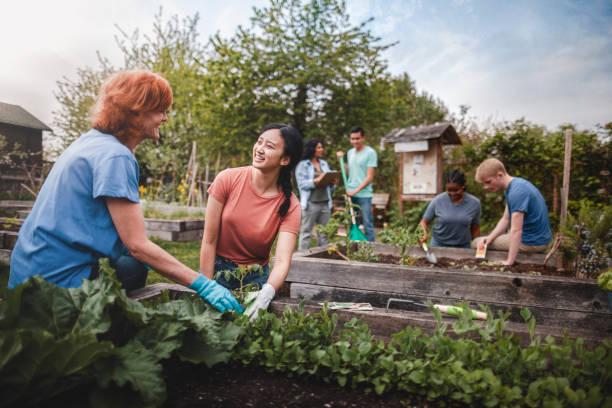
In the heart of South America lies Ecuador, a country blessed with fertile lands and a rich agricultural heritage. But with modern challenges such as food security and environmental sustainability looming, the need for innovative solutions has never been more pressing. Enter sustainable farming and urban agriculture initiatives, where volunteers from around the globe converge to make a tangible difference in communities across Ecuador.
The Tapestry of Ecuadorian Agriculture
Ecuador's agricultural landscape is as diverse as its geography. From the lush highlands of the Andes to the coastal plains and the Amazon rainforest, the country boasts a wide array of climates and ecosystems. This diversity lends itself to a variety of agricultural practices, from traditional subsistence farming to modern agribusiness ventures.
Yet, like many countries, Ecuador faces challenges in its agricultural sector. Climate change, soil degradation, and water scarcity threaten the livelihoods of farmers and the availability of nutritious food for communities. In response, sustainable farming and urban agriculture have emerged as viable solutions to these pressing issues.
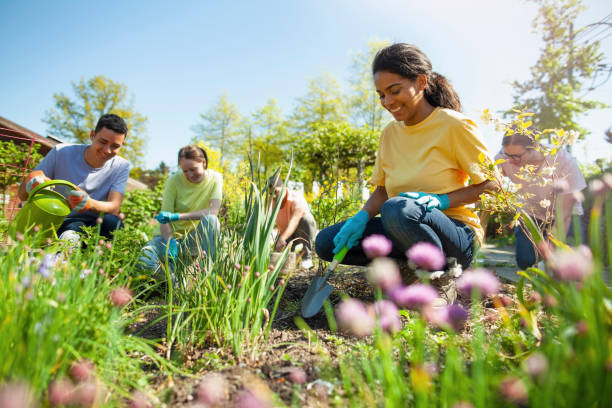
Volunteering for Change
Volunteering in sustainable farming and urban agriculture programs in Ecuador offers a unique opportunity to address these challenges head-on. Volunteers, often hailing from different parts of the world, bring a wealth of knowledge and expertise to local communities. Their role goes beyond mere assistance; they become catalysts for change, advocating for environmentally conscious practices and empowering communities to take charge of their food systems.
Empowering Communities through Sustainable Practices
One of the primary objectives of volunteering in Ecuador's sustainable farming and urban agriculture initiatives is to empower communities to become self-sufficient and resilient in the face of global challenges. This empowerment comes through education, hands-on training, and the implementation of sustainable agricultural techniques.
In rural areas, volunteers work alongside local farmers, sharing knowledge on soil conservation, crop rotation, and integrated pest management. By introducing these practices, they help farmers increase their yields while preserving the natural resources upon which their livelihoods depend.
In urban settings, volunteers spearhead the creation of community gardens and rooftop farms. These green spaces not only provide fresh produce to urban dwellers but also serve as educational hubs where residents can learn about gardening, composting, and the importance of local food production.
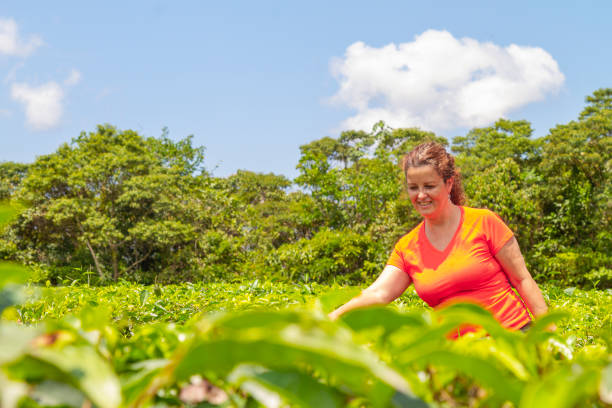
Cultivating a Culture of Sustainability
Perhaps one of the most significant impacts of volunteering in sustainable farming and urban agriculture is the cultivation of a culture of sustainability. By engaging with communities at the grassroots level, volunteers instil values of environmental stewardship and self-reliance.
Through workshops, seminars, and outreach programs, volunteers raise awareness about the importance of sustainable agriculture and its role in mitigating climate change. They inspire Ecuadorians to embrace practices that not only benefit their immediate surroundings but also contribute to the long-term health and prosperity of the nation.
Building Resilience for the Future
The ultimate goal of sustainable farming and urban agriculture initiatives in Ecuador is to build resilience. Resilience not only in the face of environmental challenges but also in the face of social and economic uncertainties. By promoting locally sourced produce and reducing reliance on imported goods, these initiatives bolster community resilience to food shortages and price fluctuations.
Moreover, by fostering connections between rural and urban communities, volunteers help bridge the gap between producers and consumers. This direct link strengthens local economies and fosters a sense of solidarity among Ecuadorians from all walks of life.
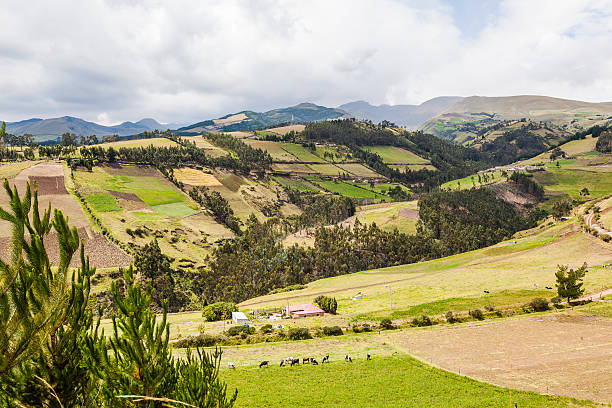
Diving Deeper: Sustainable Farming Techniques in Ecuador
To truly understand the impact of volunteering in sustainable farming and urban agriculture programs in Ecuador, let's delve deeper into the innovative techniques and practices being implemented on the ground.
Permaculture Principles:
At the heart of many sustainable farming initiatives in Ecuador lies the philosophy of permaculture – a design approach that mimics the patterns and relationships found in natural ecosystems. By integrating diverse crops, trees, and animals into a single system, farmers create resilient and self-sustaining landscapes that require minimal inputs of water, energy, and labour.
Agroforestry Systems:
In the Amazon region, indigenous communities have practised agroforestry for centuries, cultivating crops beneath the canopy of native trees. This approach not only preserves biodiversity but also enhances soil fertility and water retention, making it well-suited to the challenging conditions of the rainforest.
Companion Planting:
In both rural and urban settings, volunteers promote the practice of companion planting – the strategic placement of mutually beneficial plants together. For example, planting nitrogen-fixing legumes alongside staple crops like maize helps to replenish soil nutrients naturally, reducing the need for synthetic fertilisers.
Integrated Pest Management (IPM):
Instead of relying on chemical pesticides, farmers in Ecuador are embracing IPM techniques to control pests and diseases. This holistic approach involves monitoring pest populations, encouraging natural predators, and using physical barriers or traps to minimise crop damage.
Water Harvesting and Conservation:
Given Ecuador's diverse climate, water management is crucial for agricultural sustainability. Volunteers assist farmers in building rainwater harvesting systems, constructing swales and terraces to prevent erosion, and implementing drip irrigation to maximise water efficiency.
Seed Saving and Genetic Diversity:
In an era of industrial agriculture and genetically modified crops, preserving traditional seed varieties is vital for maintaining genetic diversity and resilience. Volunteers work with local communities to collect, save, and exchange seeds, safeguarding Ecuador's agricultural heritage for future generations.
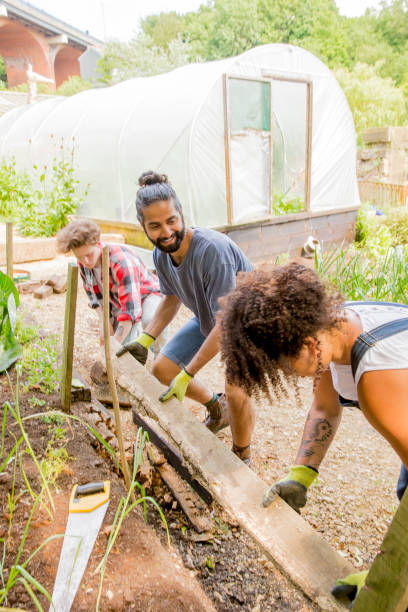
The Power of Collaboration: Partnerships for Change
Volunteering in sustainable farming and urban agriculture programs in Ecuador is not a solitary endeavour – it's a collaborative effort involving a diverse array of stakeholders, including government agencies, non-profit organisations, educational institutions, and grassroots community groups.
One such example is the "Huertos Familiares" (Family Gardens) program, implemented by the Ecuadorian Ministry of Agriculture and Livestock. Through this initiative, rural families receive training, technical assistance, and financial support to establish small-scale gardens on their land, diversifying their diets and generating additional income.
Similarly, organisations like the Agroecology Network of Ecuador (RAE) and the Urban Agriculture Network of Quito (RAUQ) facilitate knowledge sharing, capacity building, and policy advocacy within the sustainable farming and urban agriculture sectors. By fostering collaboration among diverse stakeholders, these networks amplify the impact of individual efforts and catalyse systemic change.
Looking Ahead: Challenges and Opportunities
As we look to the future of sustainable farming and urban agriculture in Ecuador, several challenges and opportunities lie on the horizon. Climate change poses a significant threat to agricultural productivity, exacerbating issues such as droughts, floods, and pest outbreaks. Additionally, rapid urbanisation and land conversion place pressure on agricultural lands, leading to habitat loss and fragmentation.
However, amidst these challenges, there are also opportunities for innovation and adaptation. Advances in technology, such as precision agriculture and agroecological modelling, hold promise for enhancing productivity while minimising environmental impact. Moreover, growing consumer demand for organic and locally sourced food presents a market opportunity for small-scale farmers and urban gardeners.
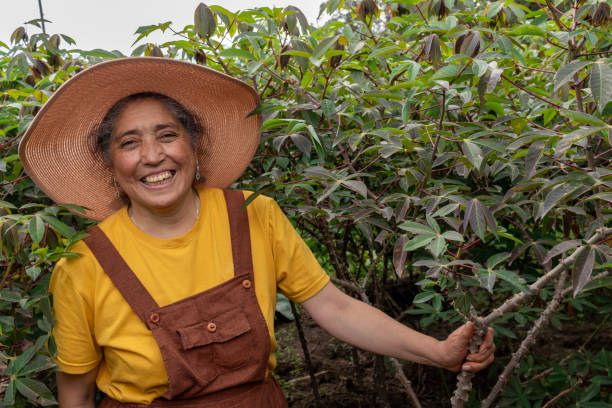
Exploring Ecuador's Agricultural Bounty
Before delving deeper into the realm of sustainable farming and urban agriculture, let's take a moment to appreciate Ecuador's agricultural bounty. From the vibrant markets of Otavalo in the Andean highlands to the bustling streets of Guayaquil on the coast, Ecuador's agricultural diversity is evident everywhere you look.
In the highlands, farmers cultivate staples such as potatoes, quinoa, and corn, along with an array of fruits and vegetables like tomatoes, avocados, and strawberries. The coastal region boasts an abundance of tropical fruits such as bananas, pineapples, and mangoes, as well as seafood harvested from the Pacific Ocean. In the Amazon rainforest, indigenous communities practise agroforestry, cultivating crops like cacao, coffee, and acai alongside native trees and plants.
Despite this richness, Ecuador faces challenges in its agricultural sector. Small-scale farmers often lack access to resources such as land, credit, and technical assistance, while large-scale agribusinesses dominate certain markets, leading to issues of inequality and food insecurity. Sustainable farming and urban agriculture offer pathways to address these challenges while promoting environmental stewardship and community empowerment.
A Journey into Sustainability: Volunteering in Ecuador
Volunteering in sustainable farming and urban agriculture programs in Ecuador is not just about planting seeds and harvesting crops; it's a journey into sustainability, community building, and personal growth. Whether you're a student seeking hands-on experience, a professional looking to give back, or a retiree eager to make a difference, there's a place for you in this transformative movement.
Imagine waking up to the crisp mountain air of the Andes, surrounded by verdant fields and terraced slopes. Your day begins with a hearty breakfast sourced from the farm itself – fresh eggs, homemade bread, and tropical fruits picked just hours ago. As a volunteer, you'll roll up your sleeves and dive into the work alongside local farmers, learning traditional techniques passed down through generations.
In the highlands, you might find yourself assisting with irrigation systems, building compost piles, or planting seedlings in the fertile soil. You'll witness the interconnectedness of all living things as you observe bees pollinating flowers, earthworms aerating the soil, and birds spreading seeds. Each day brings new challenges and discoveries, from battling pests organically to experimenting with innovative agroecological practices.
Meanwhile, in urban centres like Quito and Cuenca, volunteers contribute to the burgeoning movement of urban agriculture. You'll help transform vacant lots, rooftops, and abandoned spaces into thriving gardens and green oases. These urban gardens not only provide fresh produce to local residents but also serve as gathering places for community events, workshops, and cultural exchanges.
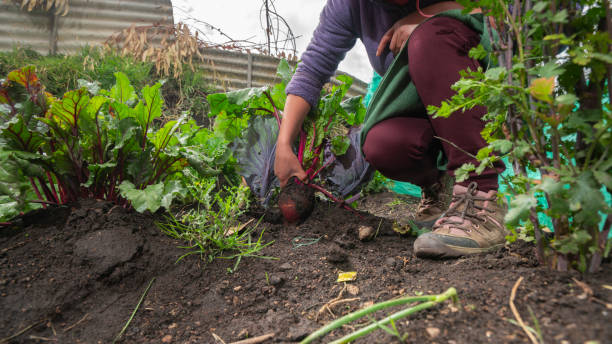
The Impact of Your Work: A Legacy of Sustainability
As a volunteer in Ecuador's sustainable farming and urban agriculture initiatives, your impact goes beyond the tangible fruits of your labour. You're helping to build a legacy of sustainability that will endure for generations to come.
By promoting agroecological practices such as crop diversification, soil conservation, and water harvesting, you're laying the groundwork for resilient food systems that can withstand the challenges of climate change. You're fostering a sense of pride and ownership among local communities, empowering them to take control of their food sovereignty and economic destiny.
Moreover, you're part of a global movement toward a more just and sustainable food system. Your experiences in Ecuador will shape not only your own worldview but also the perspectives of those around you – friends, family, colleagues – who are inspired by your journey and motivated to take action in their own lives.
Join the Movement
Are you passionate about sustainability? Do you want to make a meaningful impact on the world around you? Consider volunteering in sustainable farming and urban agriculture programs in Ecuador. Whether you're a seasoned farmer or a novice gardener, there's a place for you in this transformative journey toward a more sustainable and resilient future. By lending your time and expertise, you can help Ecuadorian communities thrive in harmony with nature. Together, we can sow the seeds of change and reap a harvest of sustainability for generations to come. Your path to cultivating sustainability awaits – will you answer the call?
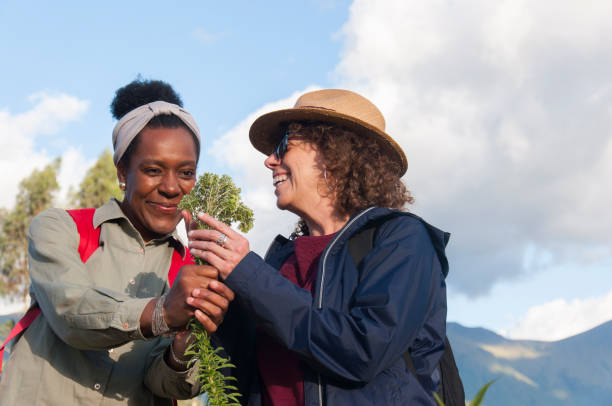
Conclusion: Your Journey Begins Here
Volunteering in sustainable farming and urban agriculture programs in Ecuador offers a unique opportunity to make a meaningful impact while embarking on a journey of personal and collective transformation. Whether you're drawn to the rugged beauty of the Andes, the lush landscapes of the Amazon, or the vibrant energy of Ecuador's cities, there's a place for you in this movement toward a more sustainable and resilient future.
So, what are you waiting for? Your journey begins here – in the fields and gardens of Ecuador, where the seeds of change are waiting to be sown. Join us, and together, let's cultivate a future filled with abundance, harmony, and sustainability.
Software designer, founder, and amateur astronaut.
I’m Spencer, a software designer and entrepreneur based in New York City. I’m the founder and CEO of Planetaria, where we develop technologies that empower regular people to explore space on their own terms.





